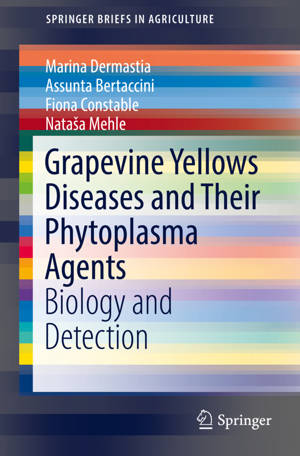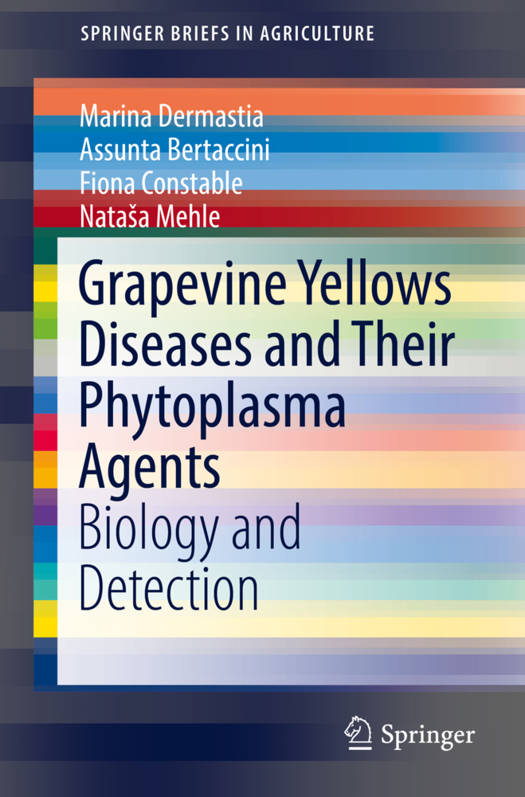
Bedankt voor het vertrouwen het afgelopen jaar! Om jou te bedanken bieden we GRATIS verzending (in België) aan op alles gedurende de hele maand januari.
- Afhalen na 1 uur in een winkel met voorraad
- In januari gratis thuislevering in België
- Ruim aanbod met 7 miljoen producten
Bedankt voor het vertrouwen het afgelopen jaar! Om jou te bedanken bieden we GRATIS verzending (in België) aan op alles gedurende de hele maand januari.
- Afhalen na 1 uur in een winkel met voorraad
- In januari gratis thuislevering in België
- Ruim aanbod met 7 miljoen producten
Zoeken
Grapevine Yellows Diseases and Their Phytoplasma Agents
Biology and Detection
Marina Dermastia, Assunta Bertaccini, Fiona Constable, Natasa Mehle
€ 80,45
+ 160 punten
Omschrijving
This work is to compile our current knowledge on GY phytoplasma biology at the genomic, transcriptomics, proteomics and metabolomics level, as well as to summarize the approaches for their detection.Phytoplasma are the most poorly characterized plant pathogenic bacteria from the Mollicutes class. In recent years new biostatistics and bioinformatics approaches have improved our understanding of their biology and interactions with host grapevines and a great improvement has been made toward their molecular detection, both in laboratories and on-site. They have a broad range of plant hosts among the monocots and dicots, and diseases of many important crops are associated with these pathogens. At least ten taxonomically unrelated phytoplasmas, one of them a quarantine pest in Europe, have been associated with grapevine yellows diseases (GY), which have great economic impact on viticulture worldwide.
Specificaties
Betrokkenen
- Auteur(s):
- Uitgeverij:
Inhoud
- Aantal bladzijden:
- 99
- Taal:
- Engels
- Reeks:
Eigenschappen
- Productcode (EAN):
- 9783319506470
- Verschijningsdatum:
- 23/02/2017
- Uitvoering:
- Paperback
- Formaat:
- Trade paperback (VS)
- Afmetingen:
- 163 mm x 236 mm
- Gewicht:
- 235 g

Alleen bij Standaard Boekhandel
+ 160 punten op je klantenkaart van Standaard Boekhandel
Beoordelingen
We publiceren alleen reviews die voldoen aan de voorwaarden voor reviews. Bekijk onze voorwaarden voor reviews.









